A slightly quieter time with the House of Commons on recess.
Before they went on recess, the Skills Bill finally made it over the line. If you are wondering why we are focussing on school level education at the moment, the first item here will explain why, as the OfS provides more insight into its views on the role of universities in schools age attainment, driven by the government’s levelling up agenda. In this context, there was controversy over whether T levels meet the needs of lower performing pupils (despite it being marketed as an alternative to academic study), and the Social Market Foundation believe current careers advice risks entrenching inequalities by steering people towards different educational and employment options according to their parents’ income and background.
Research
There’s an article on Research Professional about priorities for the Nurse review of research arrangements. It flags five “blind spots”:
- The productivity of R&D is falling
- A more systemic approach to R&D – “A more strategic approach is needed that aligns technology development, regulation, policy and test beds, and engages the public”
- Mobilising intelligence – organising around data and knowledge not property and resources
- Focus on adoption and diffusion
- Addressing the gaps around social science – “The UK is good at monetising economics, psychology, behavioural science, ethnography, design and other fields, often through consultancies and advisory services or teams within companies large and small. But this happens despite, not because of, how research is organised” and “serious action to shift incentives for social scientists and mobilise them to help society think ahead”
UKRI has published an updated policy on the governance of good research practices that will apply to new and existing grants from 1 April 2022. Updates include:
- revised text with improved clarity on the individual’s and organisation’s responsibility to enable positive research practice for high integrity research
- a policy change that organisations must inform UKRI upon deciding to undertake formal investigations.
- clearer text stating that we will only seek observer status on investigations by exception, with examples.
- clarification that UKRI will not investigate cases but will check processes at an institutional level.
UKRI has also updated its full economic cost grant and training grant terms and conditions.
- UKRI has added a new condition to reflect the statutory requirements introduced through the National Security and Investment Act 2021. Research organisations will need to ensure they follow the rules of this legislation. The legislation enables government to scrutinise and intervene in certain acquisitions that could harm the UKs national security.
- Revisions have been made to the terms and conditions in response to the new UKRI open access policy, which will apply to in-scope research articles submitted for publication on or after 1 April 2022 and in-scope monographs, book chapters and edited collections published on or after 1 January 2024. The publishing your research findingssection should be read alongside the policy for further information on open access and how to acknowledge a grant.
- UKRI has added information to employment and staff costs to clarify its position on funding that is eligible and how UKRI continues to support research staff. The updatedfEC and training grant terms and conditions will take effect from 5 April 2022 and are now available
Ukraine and Russia: The Office for Students has compiled information on the Ukraine crisis for providers offering transnational education in Russia and on research collaborations with Russian institutions.
- There are 775 Ukrainian and 3,030 Russian students studying at English universities and colleges.
- In addition, some English universities and colleges offer transnational education. There are 267 students studying in Ukraine and 3,113 students studying in Russia in this type of provision.
Wonkhe report that around 30 British universities have expressed interest in joining a new scheme which would see them twinned with an institution in Ukraine. As part of the scheme, universities may host academics and run summer schools for students to assist in catching up on lost learning. There is also discussion of providing Ukrainian academics with “ac.uk” email addresses to enable them to allow them access to resources. The scheme is supported by Universities UK and is being run by Cormack Consultancy Group. iNews has the story.
The OfS has published the interim outcomes of 20 projects that it has funded to develop and share understanding of effective practice in student engagement in knowledge exchange.
Parliamentary Questions
Money, money, money
There is an updated House of Commons library research briefing on student loan statistics.
The IfS have looked at the inflation rate and warned about the impact on student loans. Although this doesn’t change the position that graduate repayments are linked to salary and therefore a lot of this high interest will not be paid at all but will just increase the government write off, it is still unhelpful, because of applicant perceptions and risk aversion. And increasing the government write off doesn’t help their perception of the cost of HE either (see charts above).
- English and Welsh graduates who took out a student loan since 2012 are in for a rollercoaster ride on student loan interest rates in the coming years. Today’s reading for RPI inflation means that the maximum interest rate, which is charged to current students and graduates earning more than £49,130, will rise from its current level of 4.5% to an eye-watering 12% for half a year unless policy changes (the interest rates for low earners will rise from 1.5% to 9%). This means that with a typical loan balance of around £50,000, a high-earning recent graduate would incur around £3,000 in interest over six months – more than even someone earning three times the median salary for recent graduates would usually repay during that time.
- The maximum student loan interest rate is then likely to fall to around 7% in March 2023 and fluctuate between 7 and 9% for a year and a half; in September 2024, it is then predicted to fall to around 0% before rising again to around 5% in March 2025. These wild swings in interest rates will arise from the combination of high inflation and an interest rate cap that takes half a year to come into operation. Without the cap, maximum interest rates would be 12% throughout the 2022/23 academic year and around 13% in 2023/24. While interest rates affect all borrowers’ loan balances, they only affect actual repayments for the typically high-earning graduates that will pay off their loans.
- This interest rate rollercoaster will cause problems. The way the interest rate cap currently operates disadvantages borrowers with falling debt balances for no good reason. Perhaps more importantly, sky-high interest rates may put some prospective students off going to university; some graduates will likely feel compelled to pay off their loans even when this has no benefit for them.
Fees and funding – Research Professional has an interview with Philip Augar.
Financial pinch: Wonkhe – Students from England beginning higher education courses in September will see the largest ever real-terms cut in a single year, according to analysis highlighted in the New Statesman. The real-terms cut in maintenance support of 7 per cent comes in addition to the continued freeze of the income threshold required to qualify for the maximum maintenance support. And a new blog on a related topic – For Claire Callender, proposals that limit eligibility for student loans undermine recent rhetoric on levelling-up.
There’s a Wonkhe blog by David Kernohan on “what happens when providers run out of money” looking at processes and some examples: “Market exit, in other words, has still not been normalised. As much as we might pretend that the invisible hand makes the decisions – provider monitoring, insolvency, and student support – the actuality of the process remains as messy and human as it ever was. The pre-OfS strategy – of selectively limiting provider borrowing, loosely controlling provider growth and shrinkage, and (yes!) selectively bailing out providers if this was needed to protect the interests of students or applicants – feels like a more honest approach.”
Levelling Up
The Institute for Government (IfG) published Will the levelling up missions help reduce regional inequality? concluding that the Government’s 12 levelling up ‘missions’ – targets to be achieved by 2030 across a range of policy areas from crime to health to housing – will not reduce regional inequality. The IfG finds that only four of the 12 missions are clear, ambitious and have appropriate metrics against which the government will measure and demonstrate progress by 2030. IfG state the other eight missions need to be recalibrated if they are to deliver on the government’s promises to level up the UK. The IfG also calls on the government to put the right systems in place to ensure that ministers and civil servants are held accountable for progress on the levelling up agenda. They believe the proposed Levelling Up Advisory Council cannot provide rigorous expert advice and scrutiny when it operates only at the discretion of the government and cannot perform independent analysis. And without any idea of which departments are leading the coordination of policy contributing to each mission, it will be harder to hold government accountable if things are off track.
The IfS press release summarises their main findings:
- Five of the missions are not ambitious enough, meaning that little or no change would be needed to meet them. For example, one metric requires that pay increases in every region by 2030, but this is almost certain to happen regardless of policy.
- Three missions are too ambitious to be realistic, which will also fail to inspire policy action. For example, meeting the target of 90% of students achieving the expected standard by age 11 will be virtually impossible.
- Four of the missions do not define what success really looks like, making it hard for actors within and outside government to know what they need to do to make progress. For example, it is not clear what the government means by a ‘globally competitive city’, but one of the missions sets a target to have one in every region of the UK by 2030.
- Two of the missions have too narrow a focus, and risk diverting attention and resources away from other outcomes that would contribute to levelling up.
- One mission (on R&D spending) does not align with the overall objective of levelling up to reduce regional disparities.
- Important objectives, such as simplifying funding for local government, are not currently part of the proposed metrics. Other metrics, such as those on pay and productivity, are due to be tracked only over large geographic regions despite the white paper acknowledging significant inequalities within these regions.
And while we are on the topic of levelling up, a key part of the government agenda is on part-time and mature students, with an ongoing consultation on the lifelong loan entitlement. There is a House of Commons research briefing on part-time students.
Schools, skills and qualifications
Universities working with schools: The OfS published an insight brief Schools, attainment and the role of higher education providing examples and commentary on some the work HE providers are already doing in schools to raise attainment. BU’s books and stories scheme is celebrated on page 5.
- Raising the expectations(rather than simply the aspirations) of pupils and their parents, teachers and guardians. Findings from the formative evaluation of the Uni Connect programme show that 79% of participants who responded to the survey had increased expectations for the future, while 94% had better knowledge of higher education options.
- Appointing ‘influencers’ and running dedicated open days and interactive events for pupils with experience of local authority care.
- Sponsoring local schools, as 73 universities and colleges reported in their 2019-20 access and participation plans that they were doing or about to do. Some have set up maths schools, such as the Exeter Maths School sponsored by the University of Exeter and Exeter College. The Liverpool Institute of Performing Arts has incorporated a primary school and a sixth form college into its LIPA Learning Group. Bridgwater and Taunton College sponsors a multi-academy trust.
- Running summer school programmes for school pupils. Evidence suggests that participating in summer schools is associated with greater confidence and increased aspiration, and with higher GCSE grades and rates of progression to higher education.
- Programmes of intervention in schools to raise attainment. The Education Endowment Foundation has rated interventions related to metacognition and self-regulation as highly impactful, and some universities and charities take this approach to raising attainment. Others focus their interventions on improvements to subject knowledge or to grades and capabilities e.g. BU’s Books and Stories programme which increased the reading age of participants.
- Supporting attainment at Level 3through Access to HE courses taught in further education colleges.
- Providing initial teaching training and continuing professional development to teachers. The Sutton Trust found that ‘for poor pupils the difference between a good teacher and a bad teacher is a whole year’s learning’. A separate report also found six teacher characteristics associated with increased attainment, including a strong pedagogical knowledge. Evidence shows that high quality continuing professional development has an average effect on pupil attainment equivalent to a month of extra learning.
- Broadening the available routes into higher education to include short courses and apprenticeships. Over 100 universities and colleges offer degree apprenticeships, but some young people lack the knowledge to make an informed choice. With strategic partnerships, providers can show how diverse the sector is and help young people to choose a path to a successful career.
- Staff and alumni involvement in school governor structures. For example, the University of Manchester has a longstanding staff and alumni school governor initiative. The university recently conducted an impact study showing that, if all universities in England and Wales adopted the initiative, they could fill more than 10 per cent of the current nationwide school governor vacancies.
- Access and outreach work, which is often collaborative and can contain elements of raising attainment. For example, in the National Outreach Coverage project, between 2017-18 and 2019-20 over 80,000 activities related to skills and attainment were reported through tracking services in England.
New Government dashboard for pupils: Skills Minister, Alex Burghart, spoke at a Policy Exchange event stating that the new ‘Unit for Future Skills’ will begin publishing data in April. The Unit was announced in the Levelling Up White paper and is expected to be cross-government, publicly accessible, and produce information on local skills demand, future skills needs of businesses and the pathways between training and good jobs. A DfE spokesperson told news outlet FE Week that the unit would take over the work of the DfE’s skills and productivity board once its schedule of reports had been completed.
Data provided through a central-government dashboard will inform prospective learners whether peers taking a certain qualification in health and social care go on to work in health and social care, or whether they ultimately work in retail. The Government hopes the dashboard will improve the quality of information available to school pupils.
In response to a question from the audience about the timescales attached to the UFS, the minister said his department will be starting to release data this month, but was keen to stress that it will be on an “iterative basis” and so would only be “an indicator of the sorts of things we can start doing over time.”
Burghart also commented that a reduction in undergraduate numbers would be a good thing.
- Perceptions of post-18 study are shifting. And they are shifting I think for the better.
- I would not be at all surprised if, in 10 years’ time, many more people are choosing to become apprentices after leaving school or college – and that the consequence of this may be that there are slightly fewer undergraduates. I consider that to be a good thing. Now, I believe in the importance of universities and the power of university degrees. But I know they are not the be all and end all.
- As I said at the start, I taught and lectured for a number of years in some wonderful universities. I was lucky enough to teach some very bright people. But it was clear that not all of them wanted to be at university, a number were there by default, because their parents wanted them to be there, or because they felt they had no other ladders to a good career.
- Apprenticeships have the potential to create some of those other ladders. In doing so, they can help to transform opportunity. The chance to earn while you learn, to get a three-year head start on your undergraduate friends in the workplace, to build networks, experience, to not run up debt. They are surely a huge part of the future of skills.
Careers advice: The Social Market Foundation (SMF) published new research demonstrating that careers advice and guidance risks entrenching inequality by steering people towards different educational and employment options according to their parents’ income and background. The report examines school leavers and adult learners’ experiences of careers information, advice and guidance (IAG) in England. SMF say it presents new evidence on the way that people engage with IAG and they make a number of policy recommendations to increase the personalisation, accountability, and accessibility of IAG.
Key findings:
- The shape and quality of IAG services is patchy, varying substantially across and within schools and colleges
- Support for those pursuing vocational options tends to be weaker, with students carried towards university by inertia
- People tend to favour anecdotal information over hard data, but even those using formal information make limited use of government sources
- There is a mismatch between the grand ambitions of IAG, and what users expect from it. Careers professionals view it as long-term career planning and skills development, whereas receivers tend to just want help with the next step.
- Adults are largely unaware of IAG services and face significant barriers to accessing them
Six actions policymakers can take:
- Ensure every school leaver receives a minimum level of personalised careers support by offering an entitlement to three one-to-one sessions.
- Add careers provision to the four ‘key judgements’ on which schools are graded in Ofsted inspections.
- Set the Careers and Enterprise Company the objective of tackling inequalities between schools in the level and quality of information, advice and guidance.
- Aim to ensure all apprenticeship opportunities are listed on the UCAS system, perhaps by establishing and integrating local platforms.
- Partner with trusted private apps and websites to ensure official government data and information is easily accessible.
- Engage in a large-scale outreach programme promoting adult education and careers services.
There’s a Wonkhe blog on careers support here from Jon down of Grit Breakthrough programmes:
- 98 per cent of careers professionals in universitiesfeel students do not engage with career development activities and 27 per cent of students believe that the biggest obstacle to future career success is not knowing what field to go into.
- .. If we are to drive up engagement with career development activities, it seems clear that universities need to give thought to supporting students develop the confidence to make full use of their employability offers. As a starting point, this might include:
- Creating experiences that raise young people’s self-awareness so they can articulate their unique combination of knowledge, experience, and attributes, and the contribution they can make.
- Coaching students to arrive at their own goals and support them in building the resources to achieve them, rather than simply imparting information, guidance, and advice.
- Reframing support so it is not all about finding a lifeline in a crisis but instead is about gathering what you need to be a success
T level criticism: The completion of the Bill won’t be popular with all. Lord Baker has spoken out to criticism the current T levels as too academic and not serving important elements of the UK population. Lord Baker is a former secretary of state for education and science (1986-1989) and was integral to the introduction of GCSE exams.
During a select committee hearing Lord Baker stated that the Schools White Paper should have promoted a skills-rich curriculum, as well as one that focused on knowledge. He outlined his surprise at how modest the paper was, with the focus centring on the improvement of literacy and numeracy, and stated he did not agree with the idea of raising the goal of the average grade to 5 from 4.5 as that would further disadvantage certain students.
On T levels Lord Baker explained that they had introduced new T Levels at his University Technical Colleges 18 months ago, and that his trust had found they were more suited to academically able students. He highlighted to the Committee that of the ten pupils who started, three dropped out because they weren’t academically up to it, and they were people who got below a seven in GCSEs. He went on to assert that he thought the T Levels were suited to students who were achieving above a seven in GCSE.
Lord Baker emphasised that education policy should be focused on the “bottom third” of students across the country who do not pass GCSE English and maths (at level 4 or above), and that there had been no progress for this group for over a decade. He added that the curriculum reforms introduced by former education secretary Michael Gove from 2014 had not improved outcomes for low-attaining students and stated this was one of the reasons why youth unemployment in the UK was double that of Germany.
Overall his view is that T levels are not suited to over a third of the UK child population and result in drop outs. – a blot on the Government’s quality landscape, particularly at a time when they are pushing regulators to threaten punitive action for HE providers with higher dropout rates.
Meanwhile Wonkhe covered a new apprenticeships report: the apprenticeships system favours those from professional backgrounds and wealthy areas, according to a report published by think tank Onward. The research identifies a reduction in the number of people taking entry-level apprenticeships as businesses use their levy funds to support existing staff. The report’s recommendations include fully funding apprenticeships for those aged 16-18, giving mayors more responsibility to support SMEs to take on apprentices, and providing financial incentives for businesses to take on new apprentices.
And with all that in mind, the Skills and Post-16 Education Bill finally passed: Last week we highlighted that the prorogation of Parliament would mean all Bills that weren’t finalised would have to navigate a carry over process to avoid being lost. One hanging in the balance was the Skills and Post-16 Education Bill – stuck in the “ping pong” tussle between the Lords and the Commons over the withdrawal of BTEC qualifications. The Government heaved a sigh of relief as, at the last minute, the Lords conceded and dropped the disagreement over Amendment 15B which called for a 3-year wait before removing funding from applied level 3 qualifications (BTECs). Government Education Minister, Baroness Barran, calmed the discontent by playing down the implications and making small concessions. Key points from her speech:
- Last November, the Education Secretary announced an additional year before funding would be removed from qualifications that overlap with T Levels, and the government have also removed the English and maths exit requirement from T Levels
- A further delay will not benefit providers, AOs, employers or students – stakeholders need clarity on implementation timescales
- Applied generals, such as BTECs, will have an important role to play alongside T Levels
- To be approved for funding in future, quals will need to meet new “quality and necessity” criteria – students will be able to continue to take Applied Generals, including BTECs, alongside A Levels, as part of a mixed programme
- Stressed they were not creating a binary system, but wanted students to be able to choose from a high-quality mixed system
- Around 1,800 qualifications have low or no enrolments and will therefore have funding removed from August 2022
- The next phase of reforms will be to consider qualifications that overlap with T Levels – they anticipate they will remove funding for “just a small proportion” of the total Level 3 offer, including BTECS: “This will be significantly less than half” she added
- Expect to publish the list in due course, and there will be an opportunity for awarding organisations to appeal a quals inclusion on the list.
- Qualifications identified as overlapping with waves 1 and 2 of T Levels will not have funding removed until 2024/25.
- Qualifications identified as overlapping with waves 3 and 4 of T Levels will not have funding removed until 2025/26.
- Employers will now have the opportunity to say if they believe quals support entry to occupations not covered by T Levels.
- The new Unit for Future Skills, announced in the Levelling Up White Paper, will have a role to play in gathering evidence and regularly assessing the quality of qualifications.
All Peers also received a letter from the Education Secretary stating that all qualifications, including BTECs, have an important role to play in the education ecosystem, and appeared to ease off on the A Level/T Level binary approach. Lord Blunkett, the architect of the troublesome amendment welcomed the Government’s small concessions. In short, this means the Skills Bill now awaits the Royal Assent rubber stamp and will become an Act of Parliament.
Anti-Semitism
Wonkhe: Lord John Mann has been appointed to set up a new task force of senior ministers and MPs to look into the treatment of Jewish students in UK universities. Speaking at the Jerusalem Post London conference yesterday, Mann said the working group would “listen” to the voices of Jewish students. Justice minister Lord Wolfson also spoke at the conference, insisting that the IHRA definition of antisemitism does not shut down free speech. Jewish News has the story.
Wonkhe also report on The Times coverage that higher and further education minister Michelle Donelan is “considering a range of possible measures” against NUS following concerns about antisemitism within the organisation. Jewish News cover the calls from Lord Mann to not recognise NUS as the representative of student voice if things do not change, and an open letter from Lancaster University’s Students’ Union expressing concern over antisemitism in NUS. The NUS have published a statement here.
Access & Participation
Parliamentary Question: the benefits of students having at least one family member who attended university, and whether it should be declared on applications if someone is a first generation HE student.
Disabled Students’ Commission
Wonkhe report on the Disabled Students’ Commission publication of its second annual report: It reports a degree awarding gap for disabled students of 1.1 per cent in 2020-21 – driving a Commission focus on improving the disabled student experience. The report highlights the ongoing challenges faced by disabled students, and recommends increased consultation and communication with students, consistent approaches to support across and between higher education providers, more flexibility in teaching, learning, and assessment, and offering certainty for disabled students that they will get the support they need.
Disability Voice Blog: Wonkhe inform that the blog of the Association of National Teaching Fellows (NTF) has a piece on amplifying disabled student voices.
Other news
Graduate outcomes: an interesting blog by Charlie Ball of JISC on Wonkhe. In the light of all the government talk about poor graduate outcomes …how we can be in a situation where one group of stakeholders can hold the view that there are too many people going to university, and others can have spent many years worrying that they cannot find the graduates that they need to thrive.. Well, yes, good question. The suggested answer is that we need more data.
Dropping out: Wonkhe have a quick write up following DfE drop out news – Higher and further education minister Michelle Donelan has written on the DfE’s Education Hub blog about how the drop-out rates of students in the 2019-20 cohort has fallen below ten per cent for the first time. However, Donelan attributes this to the government’s recent push to drive up quality. On Wonk Corner, DK questions how recent policy announcements could have impacted on events in the past.
Admissions: In the context of the new UUK admissions code, there is a Wonkhe blog: Do applicants who end up on a course generally meet the entry requirements of that course? Jane White shares evidence that very often this is not the case
Hygge: A neat piece from Wonkhe on the benefits of the Danish hygge for students.
Subscribe!
To subscribe to the weekly policy update simply email policy@bournemouth.ac.uk. A BU email address is required to subscribe.
External readers: Thank you to our external readers who enjoy our policy updates. Not all our content is accessible to external readers, but you can continue to read our updates which omit the restricted content on the policy pages of the BU Research Blog – here’s the link.
Did you know? You can catch up on previous versions of the policy update on BU’s intranet pages here. Some links require access to a BU account- BU staff not able to click through to an external link should contact eresourceshelp@bournemouth.ac.uk for further assistance.
JANE FORSTER | SARAH CARTER
VC’s Policy Advisor Policy & Public Affairs Officer
Follow: @PolicyBU on Twitter | policy@bournemouth.ac.uk
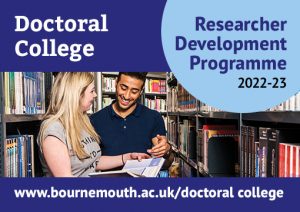


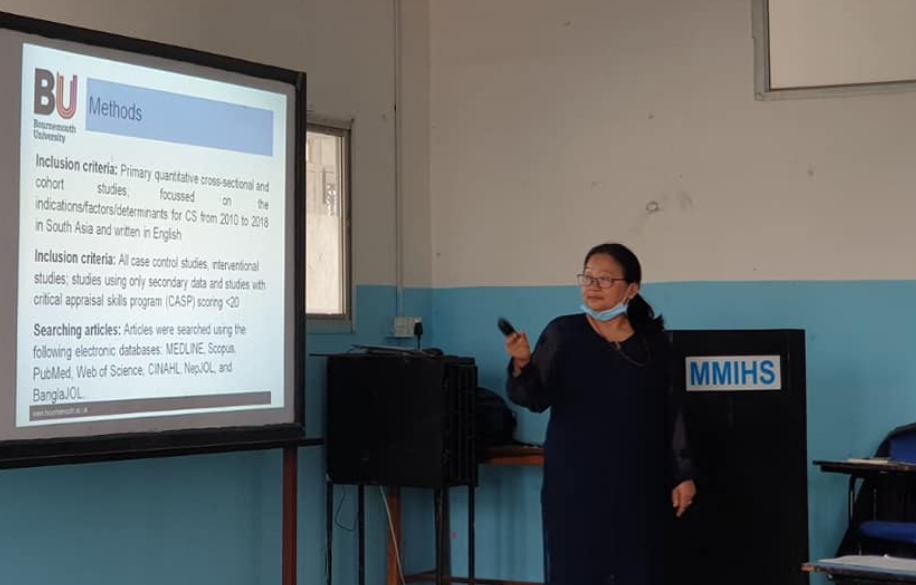
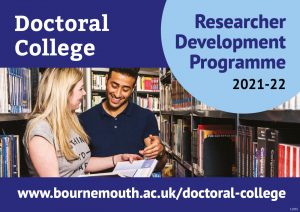
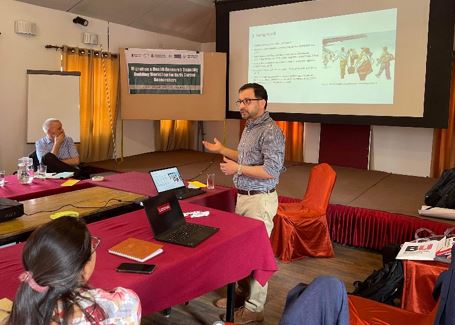
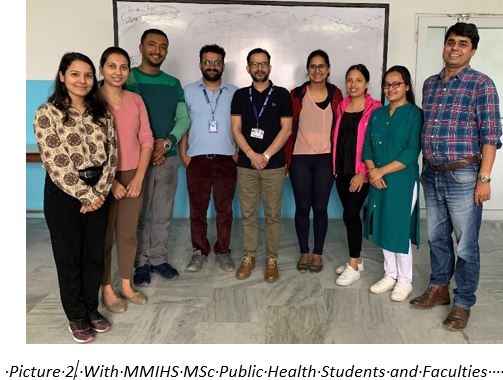
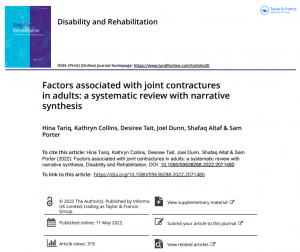


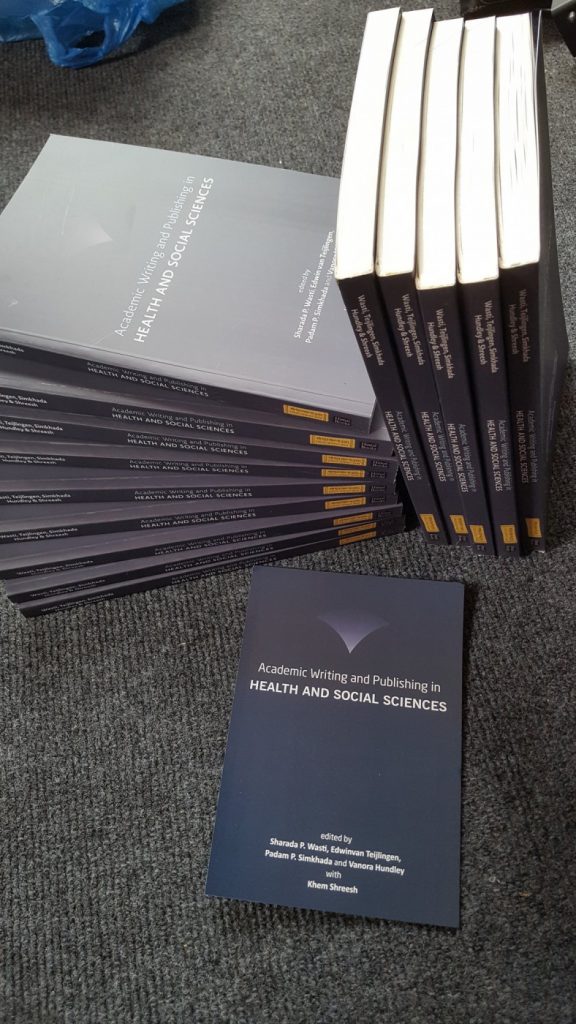


 With the help of two BU LLM Public International Law students, over the next weeks, we will be conducting real-time open source documenting of mass graves. Our aim is to catalogue reporting on mass graves found in media outlets, civil society research, official statements. This will include gathering information on the recording of mass graves; the reporting on mass graves; information on victim numbers in mass graves; the protection of mass graves; alleged disturbances of mass graves and, where applicable, the investigation of mass graves.
With the help of two BU LLM Public International Law students, over the next weeks, we will be conducting real-time open source documenting of mass graves. Our aim is to catalogue reporting on mass graves found in media outlets, civil society research, official statements. This will include gathering information on the recording of mass graves; the reporting on mass graves; information on victim numbers in mass graves; the protection of mass graves; alleged disturbances of mass graves and, where applicable, the investigation of mass graves.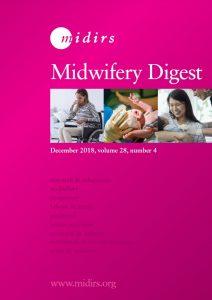

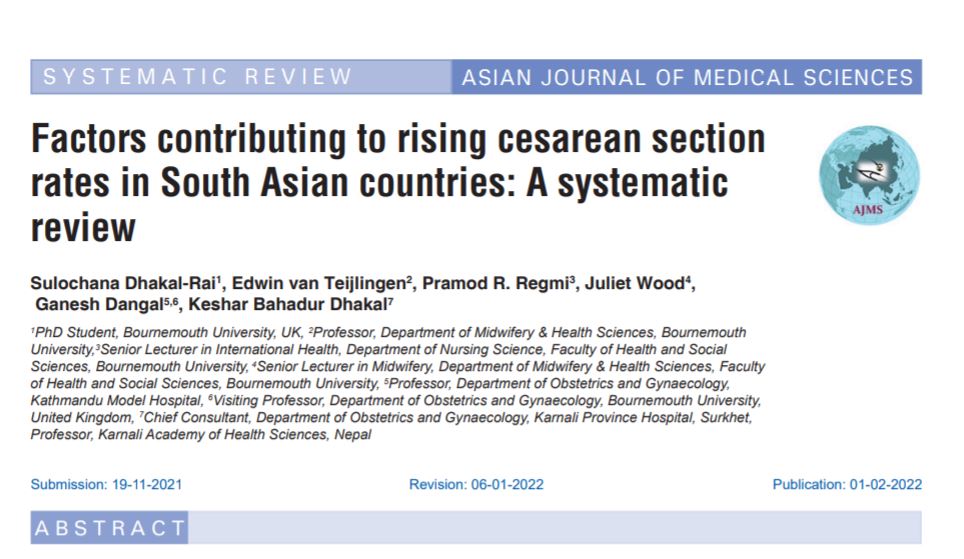 Congratulations to Bournemouth University’s PhD student Sulochana Dhakal-Rai on the publication today of the latest paper from her research thesis. This latest paper ‘
Congratulations to Bournemouth University’s PhD student Sulochana Dhakal-Rai on the publication today of the latest paper from her research thesis. This latest paper ‘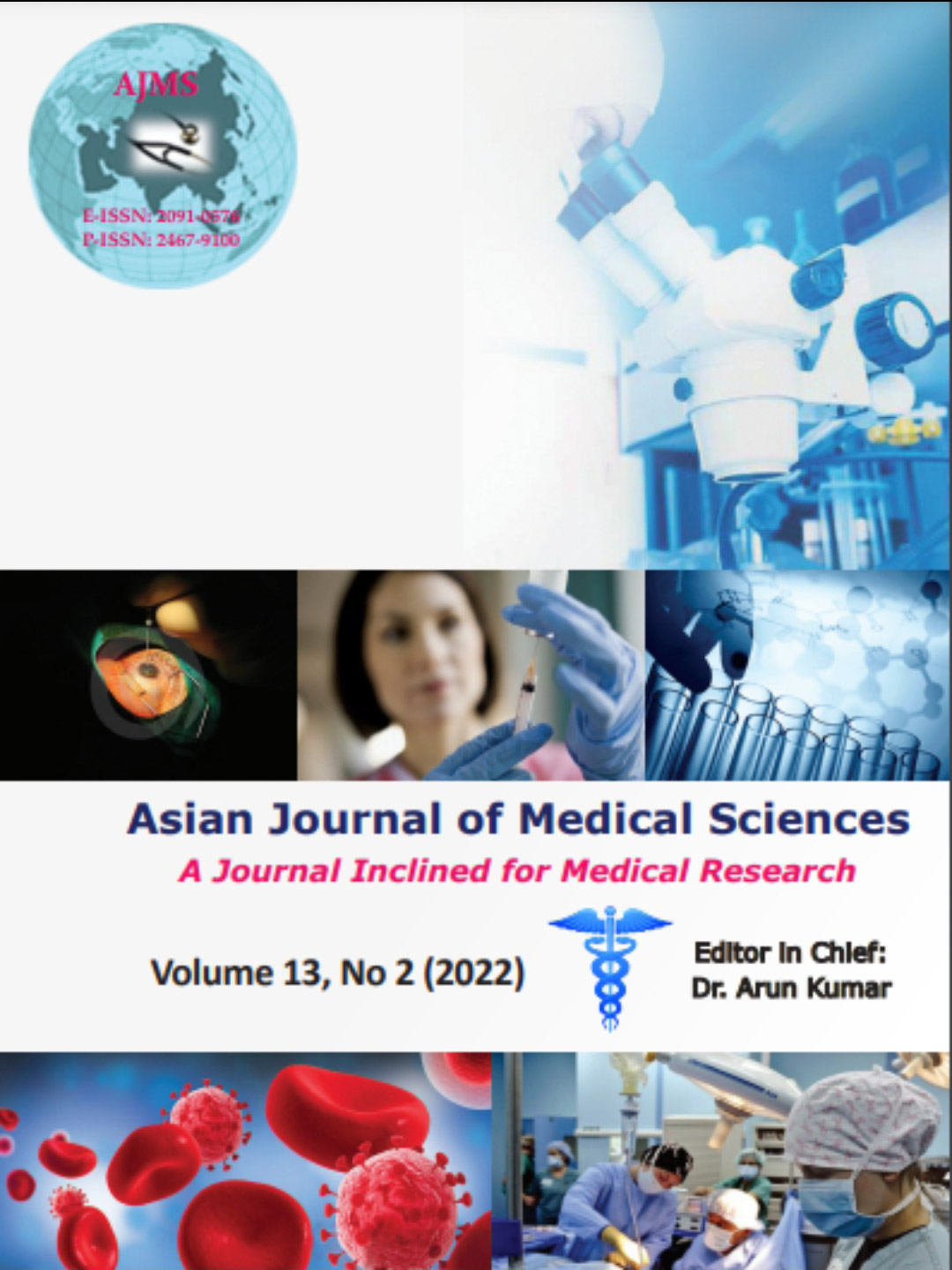 The paper is part of her PhD study of the rising CS rate in Nepal. This systematic review is co-authored with her BU PhD supervisors, Dr. Juliet Wood, Dr. Pramod Regmi and Prof. Edwin van Teijlingen as well as her Nepal-based supervisors Dr. Ganesh Dangel (FHSS Visiting Faculty) and Dr. Keshar Bahadur Dhakal. This is the sixth paper from Sulochana’s interesting and highly topical PhD thesis. The previous five were published in 2018, 2019 and 2021 [2-6].
The paper is part of her PhD study of the rising CS rate in Nepal. This systematic review is co-authored with her BU PhD supervisors, Dr. Juliet Wood, Dr. Pramod Regmi and Prof. Edwin van Teijlingen as well as her Nepal-based supervisors Dr. Ganesh Dangel (FHSS Visiting Faculty) and Dr. Keshar Bahadur Dhakal. This is the sixth paper from Sulochana’s interesting and highly topical PhD thesis. The previous five were published in 2018, 2019 and 2021 [2-6].










 Upcoming opportunities for PGRs – collaborate externally
Upcoming opportunities for PGRs – collaborate externally BU involved in new MRF dissemination grant
BU involved in new MRF dissemination grant New COVID-19 publication
New COVID-19 publication MSCA Postdoctoral Fellowships 2024
MSCA Postdoctoral Fellowships 2024 Horizon Europe News – December 2023
Horizon Europe News – December 2023